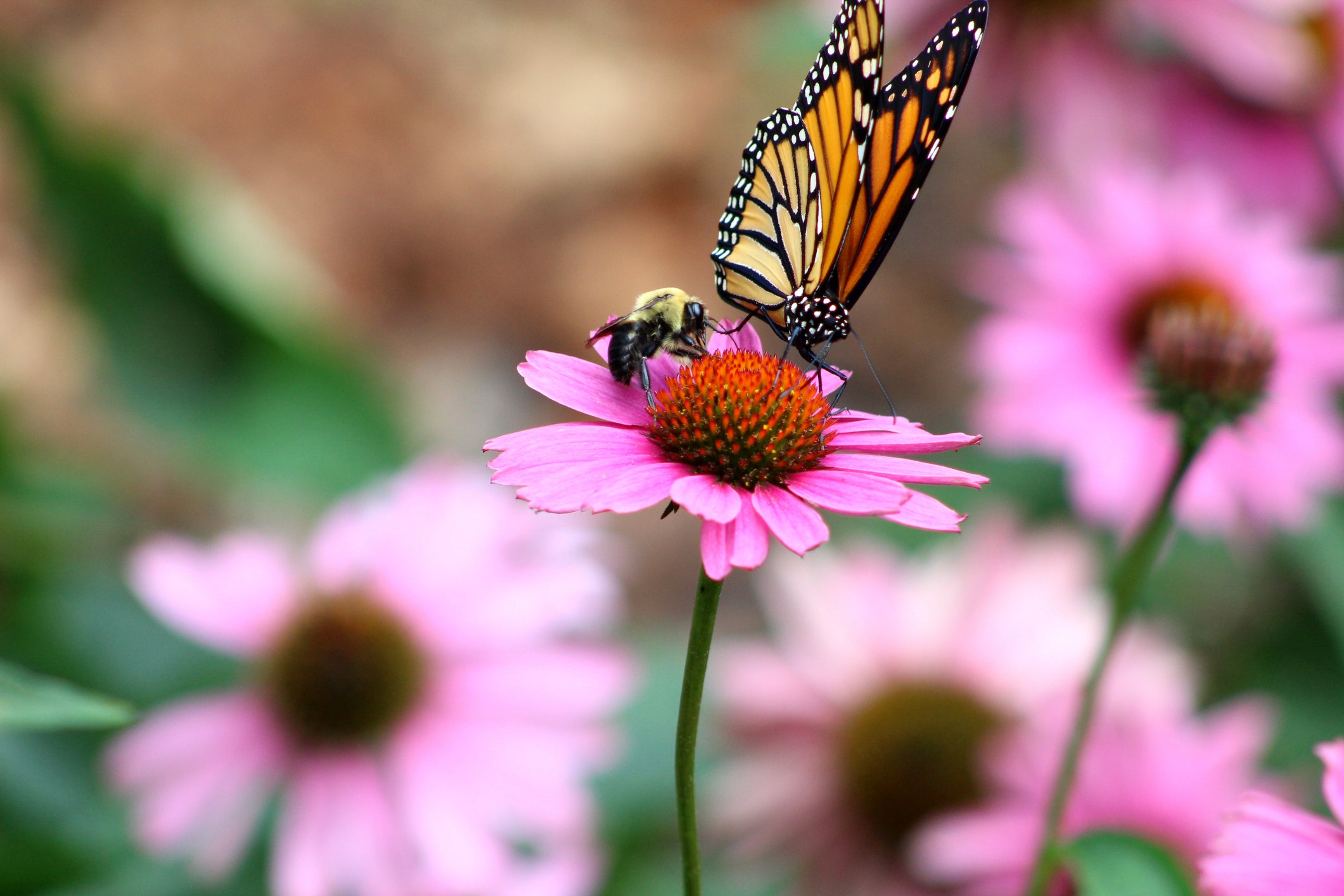Al’s Garden & Home understands the importance of creating a healthy balance in our ecosystems. Pollinators, like bees, butterflies, hummingbirds, and bats, play a vital role in plant reproduction, ensuring a thriving environment for all living things. One fantastic way to support these vital creatures is by building a pollinator garden in your own backyard!
Planting for a Purpose: The Allure of Nectar and Pollen
The key to attracting pollinators lies in understanding their needs. These busy creatures require a consistent source of food, specifically nectar and pollen. Here's how to create a pollinator haven:
- Variety is Key: Plant a diverse selection of flowers, shrubs, and trees that bloom throughout the growing season. This ensures a constant buffet for pollinators, attracting a wider range of species.
- Embrace Native Delights: Opt for native plants whenever possible. They're perfectly adapted to your local climate and pests, requiring less maintenance and less water. Additionally, native blooms have co-evolved with native pollinators, providing a reliable source of sustenance.
A Feast for the Senses: Pollinator-Friendly Plant All-Stars
Here are some exceptional plant choices to get you started:
- Early risers: Crocuses, daffodils, and violets provide a much-needed spring feast for pollinators emerging from winter.
- Summer sensations: Echinacea, coneflower, and columbine offer vibrantly colored blooms packed with nectar throughout the summer months.
- Fall favorites: Asters, goldenrods, and sedum keep the party going in autumn, providing sustenance during their migration or preparation for hibernation.
Shrubs and Trees: Powerhouses of the Pollinator Paradise
Don't forget the woody wonders! Shrubs and trees offer additional benefits as nesting sites and wind protection:
- Blooming beauties: Flowering shrubs like lilacs, butterfly bushes, and viburnums provide a delightful source of pollen and nectar.
- Fruitful delights: Don't underestimate the power of fruit trees! Apple, cherry, and plum trees offer a valuable source of sustenance for pollinators while providing you with delicious homegrown produce.
Sustainable Practices for a Thriving Ecosystem
- Skip the harsh chemicals: Avoid pesticides and herbicides that harm pollinators. Choose natural pest control methods like companion planting and encouraging beneficial insects like ladybugs.
- Let it be: Resist the urge to have a perfectly manicured garden. Fallen leaves and dead snags provide valuable shelter for overwintering pollinators.
- Water wisely: Employ sustainable watering practices like drip irrigation to conserve water.
Blooming with Benefits: The Rewards of a Pollinator Garden
By creating a haven for pollinators, you're not just beautifying your backyard. Here are some of the incredible benefits:
- Boosted yields: Pollinators are essential for the reproduction of many fruits, vegetables, and flowering plants. A healthy pollinator population translates to increased garden bounty!
- A vibrant ecosystem: A thriving pollinator population fosters biodiversity, creating a balanced and healthy ecosystem.
- Natural wonder: Witnessing the industrious dance of pollinators between your blooms is a truly magical experience.
Building a pollinator garden is a rewarding and impactful way to give back to nature. By providing a welcoming habitat for these vital creatures, you're contributing to a healthier, more sustainable future for all. Grab your gardening gloves, get planting, and watch your garden come alive with the buzz of happy pollinators! Visit our website for more information, tips, and inspiration.

Leave a comment